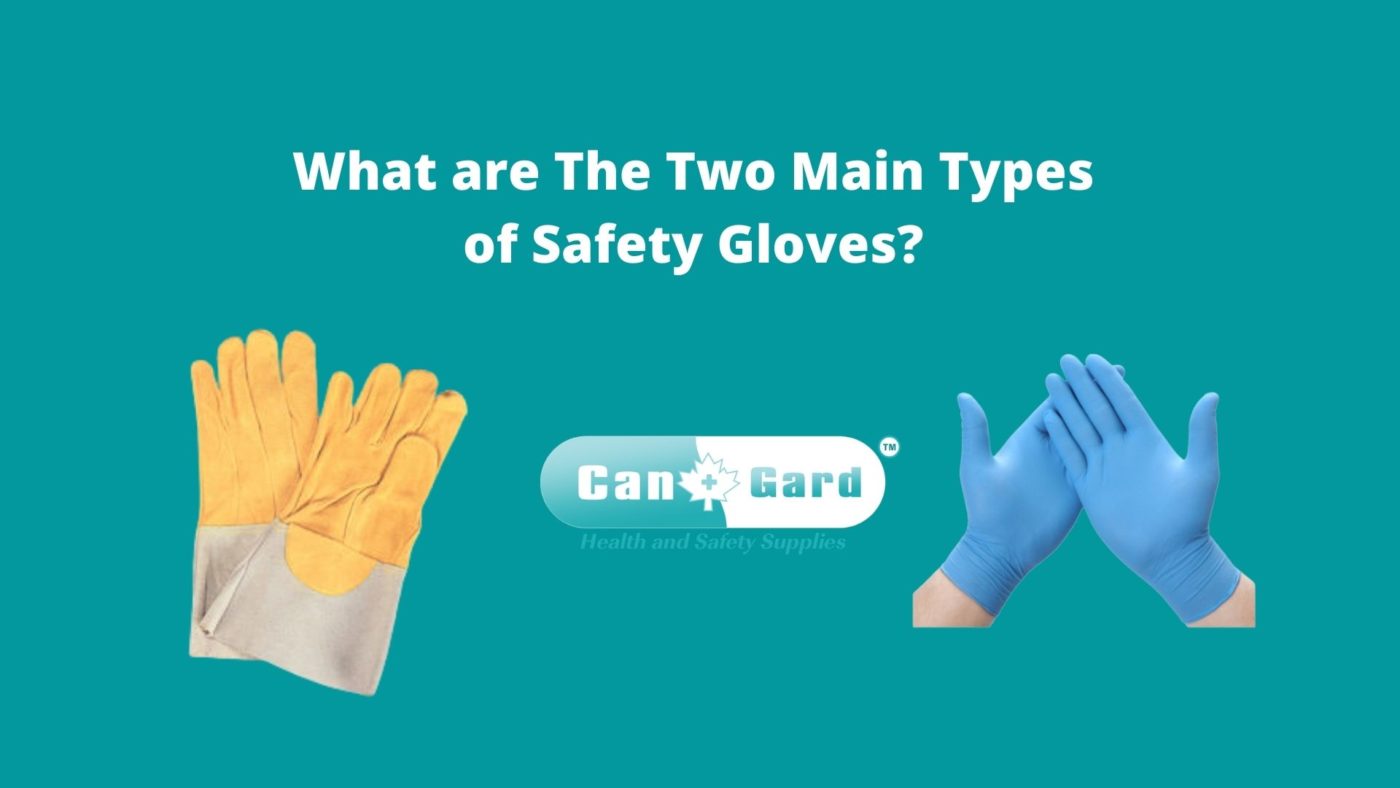No products in the cart.
Gloves
What are The Two Main Types of Safety Gloves?
Safety gloves are a necessity for many industries, but how do you know which ones to use? There are two main types of safety gloves. The first type is an unlined glove that has been treated with chemicals to resist the absorption of hazardous substances. The second type is lined with cotton or other absorbent material and should only be used when there is a risk of chemical contact. In this blog post, we will go over both types in detail so you can choose suitable safety gloves for your needs!
Unlined gloves are the most common type of safety glove. Compared to lined gloves, they offer more dexterity and are less likely to snag on sharp edges or difficult surfaces like some fabrics can. They also provide a level of protection against chemicals that is better than no protective gear at all!
What are PPE gloves, and What Do They Protect You From?
PPE gloves are a type of safety gloves that protect against skin contact with hazardous substances. They usually have no lining and can be used for both wet or dry conditions. It should not be worn when handling acids, bases, corrosives, potent oxidizing agents, and radioactive materials (except under some narrow circumstances).
Benefits of PPE Gloves
The benefit of PPE gloves is that they are inexpensive and disposable, meaning you can use them one time without having to worry about the cost. You also don’t have to wash or dry these gloves, which saves a lot of time! The disadvantage with PPE safety gloves is that they’re not as protective as some other glove types. These types of safety gloves will only protect against low levels of chemical hazards and won’t provide much resistance from electric shock.
The most recommended safety gloves are nitrile powder-free, latex-free, and nonsterile because they offer superior protection against chemicals and various other things such as bloodborne pathogens, dyes, oils, acids, and bases.
Choose the Right Type of Glove For You
The first step is to make sure you know what type of safety glove will work best for your job. Next, you should get gloves from a reputable company that has been around for a while (that way, they can be trusted). Lastly, if possible, try on the gloves before the purchase to ensure proper fit and protection.
It is crucial to choose the right type for you to use them one time without having to worry about the cost. You also don’t have to wash or dry these gloves, which saves a lot of time!
The two main types of safety gloves are nitrile and vinyl. Nitrile is made from natural rubber, which means it has better chemical resistance and durability than vinyl but can’t handle the heat. While vinyl provides more protection against electric shocks, but is less durable and doesn’t provide much physical strength to protect you from cuts.
Knowing which type is best for your situation can help save time, money, save lives and maximize yhand protection.
Main Types of Safety Gloves
Chemical resistant work safety gloves protect against hazardous substances that can be absorbed through the skin or enter the body when touching them; these include acids, oxidizers, solvents, oils, fats (including animal fat), and organic peroxides with water-based coolants.
Mechanically resistant safety gloves, which protect against abrasion or cuts from metal and other sharp objects. The most common materials used are nitrile rubber (synthetic), polyurethane, PVC/vinyl plastic, cotton fabric with latex coating; it was designed to be puncture-resistant but not chemical-resistant.
General safety gloves are designed to protect from physical hazards like cuts or abrasions. These include metalworking fluids (such as cutting oils), paint removers, glue solvents, isopropyl alcohol; these chemicals will not cause much of a problem if they come into contact with the skin.
If you are working with hazardous chemicals, make sure to wash your hands before putting gloves on. This will help reduce the risk of chemical damage and keep your skin safe from irritation. You should also clean them after any time they come in contact with a contaminated surface or substance so that you do not spread it around unnecessarily. In this way, you can keep your employees safe and healthy.
Why Wear Safety Gloves
-Provides protection from external elements and chemical substances, which can be harmful to the skin.
-Protect from punctures, cuts, or abrasions that may occur when an employee handles sharp tools for a prolonged period of time. When wearing safety gloves while cutting wood, the worker will be protected in case their hand slips off the saw blade.
-Protect against cold weather conditions. Safety equipment like this is vital for protecting workers’ hands to prevent possible work-related injuries.
-Prevents possible absorption of hazardous substances and goes into the skin.
-Provides a non-slip grip on hard to hold items and equipment, as well as protection against rain or snow when working outdoors.
-Protects against abrasions caused by gripping and handling sharp instruments; for example, when a worker uses a file to smooth rough edges off metal pipes.
-Serves as an anti-impact and anti-vibration protection. Constant vibration can damage cells in sensitive regions of the hand, damage blood vessels, cause long-term joint and muscle pain, and lead to long-term disability.
-Provides protection to avoid contact with hazardous substances and materials such as lead, acid, or solvents that could cause skin diseases like dermatitis (a form of eczema).
-Protects against contamination from harmful substances and bacteria on contaminated surfaces, preventing infection in case an injury occurs.
-Prevents possible infection from bacteria that could be on their hands after touching garbage, chemicals, or other harmful substances.
Where to Buy Them?
There are a lot of online stores where you can conveniently purchase safety gloves:
-Amazon has a variety of safety gloves, like nitrile and vinyl. They also have different sizes for both men and women so that you can find the perfect fit for yourself or your employees.
– On eBay, there are plenty of options with brands such as Durotex that offer high quality at low prices.
-Walmart offers different types of safety gloves, and you can find a lot of information on the product page about which type is best for your situation.
For a detailed overview of all the Personal Protective Equipment available from us, please visit CanGardCare.

